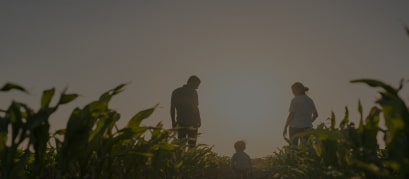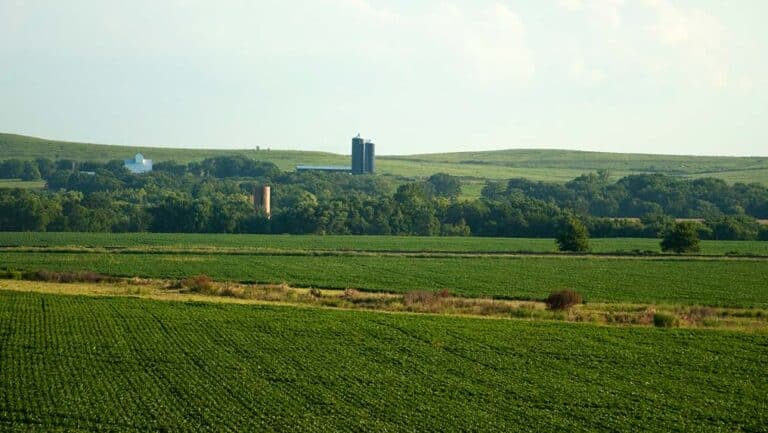2020 Cattle Industry Convention and NCBA Trade Show Recap
Learn what important topics were discussed during this year’s Cattle Industry Convention and NCBA Trade Show.
The 27th Annual Cattle Industry Convention and NCBA Trade Show took place in February in San Antonio, Texas. The convention was comprised of over 7,500 attendees and 350 exhibitors, and offered workshops and educational sessions, award ceremonies, and decision-making opportunities for the attendees. In this recap, we discuss the topics of interest, highlights of the convention, and the keynote speech from United States Secretary of Agriculture, Sonny Perdue.
Topics of Interest for the Cattle Industry in 2020
2018 Farm Bill
Many cattle producers consider the signed bill to be a major win for the industry. Impacts of the 2018 Farm Bill were discussed during the conference, including conservation programs like the Environmental Quality Incentive Program (EQIP). The program was created to improve grasslands, which many cattle ranchers heavily rely on for grazing purposes. Approximately, $300 million was secured for funding of preventative measures for diseases, with a focus on a more adequate vaccine bank to handle potential Foot and Mouth Disease (FMD) outbreaks among cattle. The payment limit was also removed from the Emergency Assistance for Livestock, Honeybees, and Farm-Raised Fish Program (ELAP) plus added cost coverage for cattle tick fever inspection. The Livestock Indemnity Program (LIP) extended coverage for additional causes of death and sales loss within the bill. Revisions to the Farm Bill provide a wider safety net from natural disasters for livestock producers.
Trade Deals
While much of the ongoing trade deals remains open to speculation, the USDA predicts an increase in beef exports to China soon as a result of the phase one signing of the U.S.-China Trade Agreement. The signing of the Korea-U.S. Trade Agreement last year made South Korea a leading destination for U.S. beef. The conference focused on the next steps in trade and market access from the USMCA trade deal, as well as ongoing trade negotiations with Japan, India, and Europe.
Climate Change
Combining environmental and economic sustainability in the beef industry was a focal point throughout the conference. The Environmental Stewardship Award Program was awarded to Jim Strickland and Julie Morris of Morris Blackbeard’s Ranch. Strickland highlighted the need for collaboration and transparency with researchers and scientists in the field of environmental conservation to come up with sustainable solutions that also benefit the cattle industry. Clarification of the WOTUS amendment to correct the current overreach of federal water protection provides ranchers with more flexibility in managing the water within their borders. The NCBA announced its continued plans to closely watch the New Green Deal climate policy and push back against misguided legislation that negatively impacts the beef industry.
Innovative Technology
As beef demand grows, so does the need for agritech tools to improve efficiency and production rates. The convention held workshops on genetic selection, through AI developments like sexed semen and precision breeding. In-vitro fertilization is becoming more accessible and affordable for producers. The use of genomic tools to produce animals with thermal adaptation was also discussed as a strategy to combat the changing climate.
Antibiotic Use and Nutritional Management
The process of mitigating antibiotic use to ensure effectiveness and decrease antimicrobial resistance in cattle was a topic of interest in educational workshops. Producers had the opportunity to give input on policies adopted by the NCBA related to cattle health and wellbeing. Attendees were able to speak with USDA and FDA representatives on resource conservation programs. Chief of USDA-NRCS, Matt Lohr attended the convention for the second year in a row, highlighting the importance of preserving finite resources to maintain high-quality beef production.
Fake Meat Regulation Reform
The Real MEAT Act, requiring plant-based products to be clearly labeled as “imitation” meat, was a welcomed piece of legislation among the cattle industry. Common misconceptions regarding plant-based meat products among consumers are that these products are lower in sodium than traditional beef and that they contain some real beef within the ingredients. Clarifying ingredients and nutritional value of these meat-free products will help the consumer make more informed decisions about what they eat.
Keynote Speakers at the 2020 NCBA Conference
Speakers at the convention included U.S. Secretary of Agriculture, Sonny Perdue, who spoke for the second year in a row. Secretary Perdue discussed updates on phase one of the U.S.-China trade deal and the ongoing discussions with Mexico, Canada, and Japan. He noted that nontariff trade barriers will open doors for the U.S. beef market in the United Kingdom. He also discussed the prioritization of sustainability on an economic, social, and environmental level within the industry. He briefly mentioned the fake meat market, stating that he didn’t see it as a threat to the beef industry. Other keynote speakers included Wayne Morgan, the Corporate Vice President of Protein Products and Sustainability for Golden State Foods (GSF) and Scott Kelly, a former astronaut who just returned from a year in space. Tyron Wickersham, an associate professor at A&M University also spoke about his research on improving economic and environmental sustainability of beef cattle production through efficiency improvements of forage utilization and adoption of coproducts as a feed resource.
2020 Goals for the Cattle Industry
The cattle industry celebrated many wins in 2019 legislation reform but remains focused on upcoming goals for 2020. These goals include the continued shepherding of 2019 legislation to ensure their effective facilitation. Registration fees for the upcoming NCBA legislative conference in Washington D.C. have been waived to encourage adequate beef industry representation. Recognition of the importance of healthy ecosystems remains a priority as NCBA executives such as the Director of Federal Lands Programs, Ethan Lane, continue to collaborate with environmental groups to find common ground in conservation measures.
Proper education on beef sustainability to combat misinformation is also a goal for 2020. Marty Smith, the new elected president of the NCBA, says his three priorities for this year are trust, transparency, and teamwork. Trust in the cattle ranchers as stewards of their land, transparency in the trading process of U.S. beef, and teamwork of researchers and ranchers to come up with sustainable solutions.
Creating Financial Stability Amid Uncertainty
Between regulation reform, upcoming elections, and ongoing trade negotiations, it’s difficult to entirely predict what the future holds for the cattle market. At AgAmerica, we provide farmers and ranchers with the financial security and working capital needed to keep their operations going. Our commitment to the American Farmer fuels innovative solutions through customizable and flexible loan packages. AgAmerica Lending supports U.S. and Texas cattle ranchers with our cattle ranch loan packages.
To learn more about our spectrum of loan options, speak with one of our lending experts today.






